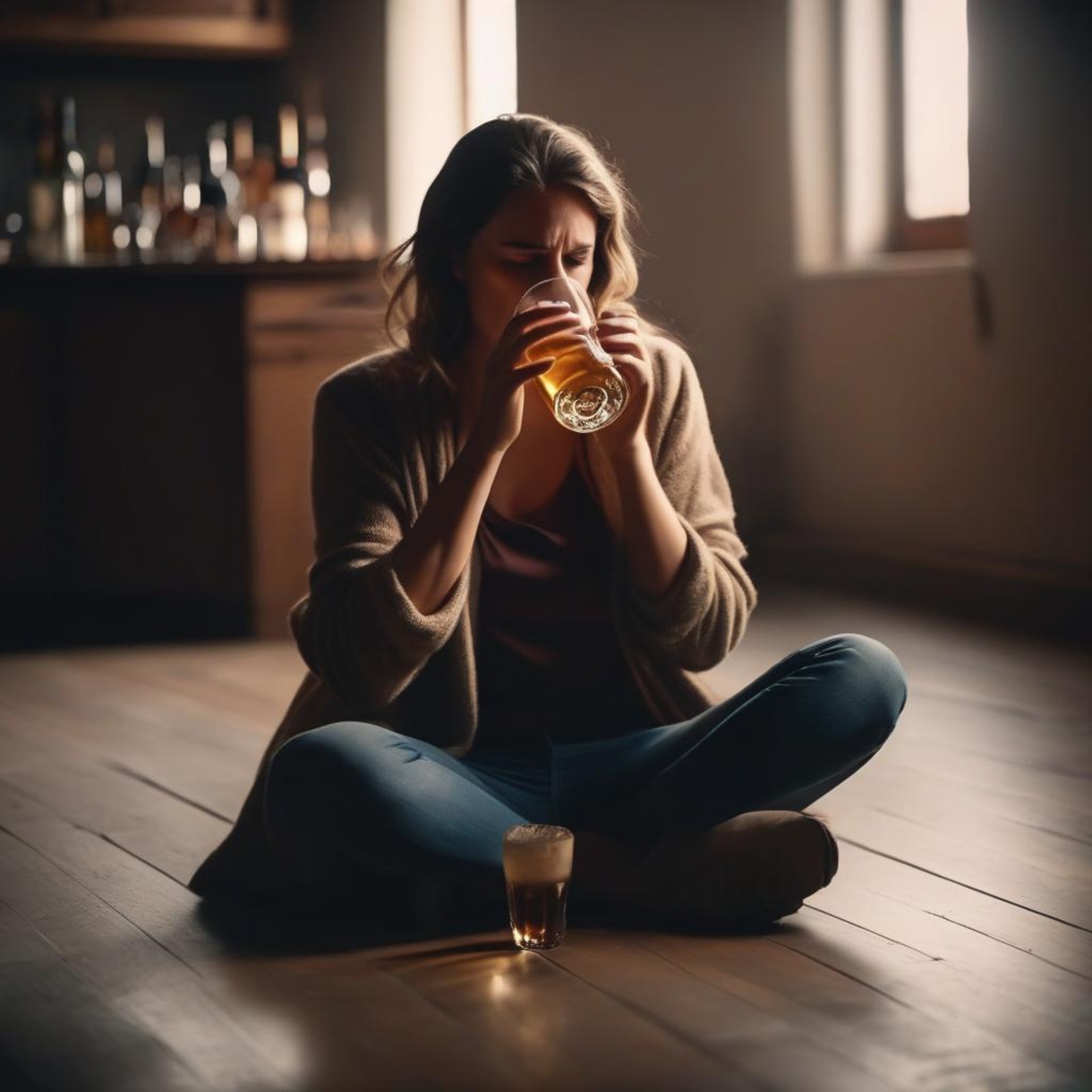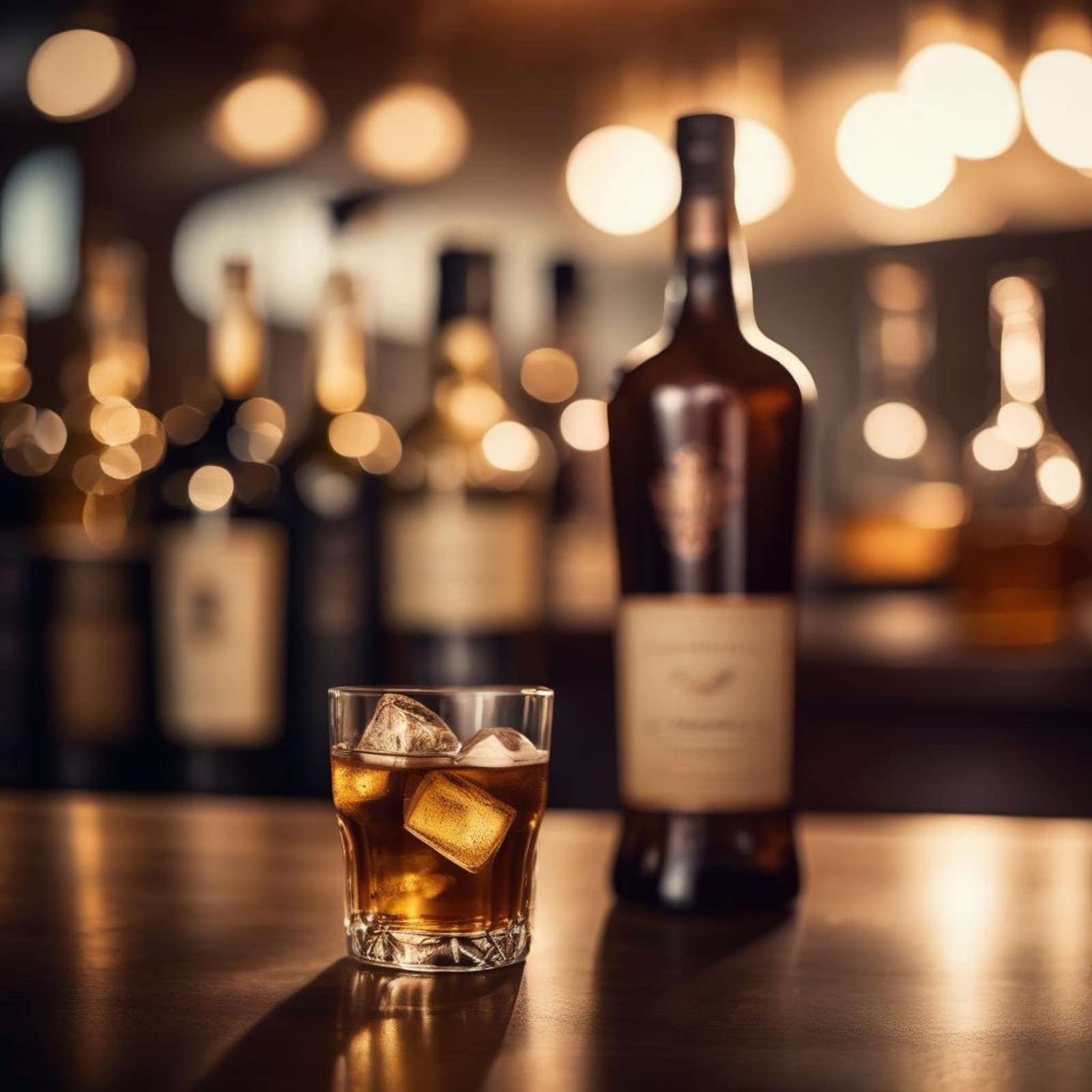Substances | 4 min read
Can You Drink On Zoloft? Understand The Risks
Medically Reviewed By

On May 20, 2024
Written By
On May 20, 2024

What you will learn
- Zoloft is an antidepressant approved by the FDA to treat numerous depression and anxiety disorders, including major depressive disorder (MDD), posttraumatic stress disorder (PTSD), premenstrual dysphoric disorder (PMDD), panic disorder with or without agoraphobia, social anxiety disorder, and obsessive-compulsive disorder (OCD).
- Alcohol is a central nervous system (CNS) depressant that can worsen depression and anxiety symptoms and potentially exacerbate Zoloft side effects.
- You should not drink while on Zoloft as these two drugs can counteract each other or worsen the effects of each.
It is not safe to consume alcohol while on Zoloft. Alcohol can worsen depression and anxiety symptoms and exacerbate Zoloft side effects. Should you choose to consume alcohol while taking Zoloft, you should do so only after consulting with your healthcare provider and understanding the potential risks, and then alcohol consumption should only be in moderation.
How Does Zoloft Work?
Zoloft (sertraline) is an antidepressant prescription medication known as a selective serotonin reuptake inhibitor (SSRI). It is approved by the FDA to treat numerous depression and anxiety disorders, including major depressive disorder (MDD), post traumatic stress disorder (PTSD), premenstrual dysphoric disorder (PMDD), panic disorder with or without agoraphobia, social anxiety disorder, and obsessive-compulsive disorder (OCD).[1]
Zoloft inhibits serotonin reuptake at the presynaptic neuron, increasing serotonin levels in the synaptic cleft.[2] Serotonin helps regulate mood, personality, and wakefulness in the central nervous system. Increasing serotonin in a person’s system with depression helps improve mood.
Can You Drink On Zoloft? Symptoms of Note
Drinking while taking Zoloft is not recommended for the following reasons: [3]
- Drowsiness and Sedation: Zoloft and alcohol both have the effect of making you drowsy and less alert. Pairing them together can cause the effects to be intensified.
- Alertness and Thinking: Mixing Zoloft and alcohol will affect your coordination, judgment, reaction time, and motor skills more so than drinking alcohol on its own. The combination of alcohol and Zoloft causes you to feel sleepy, and lowered focus and alertness can result in dangerous situations should you try to drive or do other tasks that require a high level of attention to be done safely.
- Depression and Anxiety: Alcohol is a central nervous system depressant, while Zoloft is an antidepressant. Drinking is counteracting the benefits of taking Zoloft, making it more difficult to treat your symptoms of depression. While alcohol may feel like it is improving your mood in the moment, overall, it increases symptoms of anxiety and depression.
- Side Effects Worsen: Mixing alcohol and antidepressants can result in worsening Zoloft side effects. Common Zoloft side effects include dizziness, nausea, diarrhea, dry mouth, sweating, fatigue, sleeping difficulties, sexual dysfunction, and tremors. In rare cases, side effects may include fainting, confusion, and hallucinations. All of these side effects can be enhanced with alcohol.
- Added Danger with MAOIs: Monoamine oxidase inhibitors (MAOIs) are another type of antidepressant that, when combined with alcohol or certain foods, can cause dangerous spikes in blood pressure. If you take MAOIs, it is necessary to talk to your healthcare provider and have a clear understanding of what is safe for you to eat and drink and what you must avoid.
Can You Safely Drink on Zoloft?
Some healthcare providers make allowances for moderate drinking. Moderate drinking means one drink per day for women and two for men. A drink is considered 12 ounces of beer, 5 ounces of wine, or 1 ounce of liquor/spirits.[4]
Additional precautions you can take should you choose to drink alcohol while taking Zoloft include drinking slowly and eating food while drinking to reduce the effects of the alcohol. It is not recommended to combine alcohol with your Zoloft until you know how it affects you. It is common to experience drowsiness, dizziness, and less alertness when taking Zoloft. If you experience those side effects, they will worsen when combined with alcohol.
You may not be able to tolerate the combined effects of alcohol and Zoloft, and if you choose to combine them, you will be unable to complete tasks such as driving. It is important to be aware that any amount of alcohol, even one to two drinks, can affect you when you are taking Zoloft.
Additional Dangers
Combining alcohol with Zoloft can be dangerous. Alcohol can cause depression itself and may interfere with the effectiveness of Zoloft. Mixing alcohol and Zoloft can increase the risk of suicidal thoughts and behaviors.
Sometimes, the liver can be overwhelmed when alcohol is combined with antidepressants such as Zoloft, potentially leading to serious toxicity.[5]
Serotonin Syndrome is a build-up of serotonin levels in your body that can be life-threatening if not treated promptly.[6] Too much serotonin in your body can cause mild symptoms (shivering and diarrhea) to severe symptoms (muscle rigidity, fever, and seizures). Severe serotonin syndrome can be life-threatening if not treated. Serotonin syndrome can be a result of taking too high a dose of antidepressants or combining antidepressants with other drugs or medications. Symptoms include:[7]
- Agitation or restlessness
- Insomnia
- Confusion
- Rapid heart rate and high blood pressure
- Dilated pupils
- Loss of muscle coordination or twitching muscles
- High blood pressure
- Muscle rigidity
- Heavy sweating
- Diarrhea
- Headache
- Shivering
- Goosebumps
Severe, life-threatening serotonin syndrome symptoms include:[8]
- High fever
- Severe tremor
- Seizures
- Irregular heartbeat
- Unconsciousness
Alcohol and Depression
It is best not to drink alcohol if you are depressed, as it worsens depression symptoms. If you have depression, you may have a higher risk for alcohol use disorder and other substance use disorders. If you believe you have trouble controlling your alcohol consumption, talk to your healthcare provider about treatment options.
Some people with depression have difficulties sleeping and may use alcohol to help fall asleep.
While alcohol may help you get to sleep quickly, you tend to wake up more throughout the night, and the sleep you get is less restful. Any concerns you may have regarding your alcohol use should be discussed with your healthcare provider before starting Zoloft. You may benefit from alcohol use disorder treatment.
Get Help For Alcohol or Polysubstance Use Disorder
The Food and Drug Administration warns against using alcohol when taking Zoloft. There are many reasons not to combine alcohol with antidepressant medication such as Zoloft. Some of these reasons are that alcohol can worsen depression symptoms, and combining Zoloft and alcohol can exacerbate side effects that can be mild to severe.
It is best not to drink while taking Zoloft. Should you choose to drink alcohol while taking Zoloft, you should consume alcohol in moderation. If you believe your alcohol use is contributing to your depression or anxiety, talk to your healthcare provider about substance use treatment.
Frequently Asked Questions About Zoloft and Alcohol
Discontinuing Zoloft, especially abruptly, can cause adverse effects. These include nausea, sweating, dysphoric mood, irritability, agitation, dizziness, sensory disturbances, tremors, anxiety, confusion, headache, lethargy, emotional lability, sleep disturbance, hypomania, ringing in the ear, and seizures. To avoid these withdrawal symptoms, your dosage of Zoloft should be reduced slowly to wean off the medication.[9]
Do not stop taking Zoloft or any other antidepressant just so that you can drink. Most antidepressants require a daily dose to maintain a consistent level in your system and work as intended. Stopping and starting your medications can make your depression and anxiety worse. It can also trigger withdrawal symptoms.
Alcohol is a depressant and works against the antidepressant effects of Zoloft. One of the initial side effects of Zoloft is suicidal ideations. Drinking alcohol can impair your judgment, and if you are already struggling with suicidal thoughts, it can lead to dangerous situations if you are experiencing suicidal thoughts. If you experience this side effect, you should call or text the National Suicide Hotline at 988.
If you are consuming any alcohol while taking Zoloft, you should talk through the risks with your healthcare provider right away. If you are struggling to moderate your alcohol use while taking Zoloft, you should talk to your healthcare provider about substance use treatment, including behavioral therapy and support groups.
Your healthcare provider can make recommendations for reducing your alcohol consumption, provide referrals to treatment programs, and give you tips for talking with your loved ones about your decision to reduce your alcohol use and how they may support you in this change.
Ascendant New York Editorial Guidelines
Here at Ascendant New York, we understand the importance of having access to accurate medical information you can trust, especially when you or a loved one is suffering from addiction. Find out more on our policy.
[1,5] NAMI (2024). Sertraline (Zoloft). Retrieved from https://www.nami.org/about-mental-illness/treatments/mental-health-medications/types-of-medication/sertraline-zoloft/
[4] About moderate alcohol use. (2024, May 15). Alcohol Use. Retrieved from https://www.cdc.gov/alcohol/about-alcohol-use/moderate-alcohol-use.html
[2,9] Singh HK, Saadabadi A. Sertraline. [Updated 2023 Feb 13]. In: StatPearls [Internet]. Treasure Island (FL): StatPearls Publishing; 2024 Jan-. Retrieved from: https://www.ncbi.nlm.nih.gov/books/NBK547689/
[3] Hall-Flavin, D.K. (2017). Antidepressants and alcohol: What’s the concern? Retrieved from https://www.mayoclinic.org/diseases-conditions/depression/expert-answers/antidepressants-and-alcohol/faq-20058231
[6,7,8] Mayo Clinic (2022) Serotonin Syndrome. Retrieved from https://www.mayoclinic.org/diseases-conditions/serotonin-syndrome/symptoms-causes/syc-20354758




